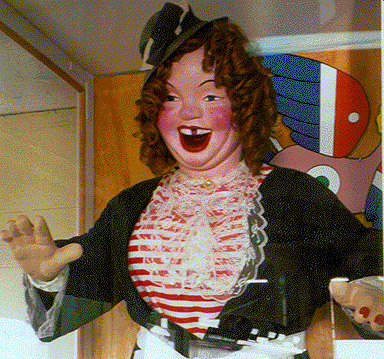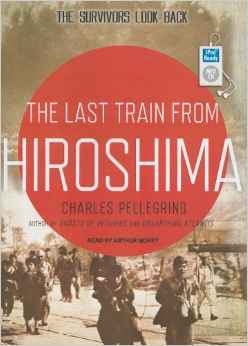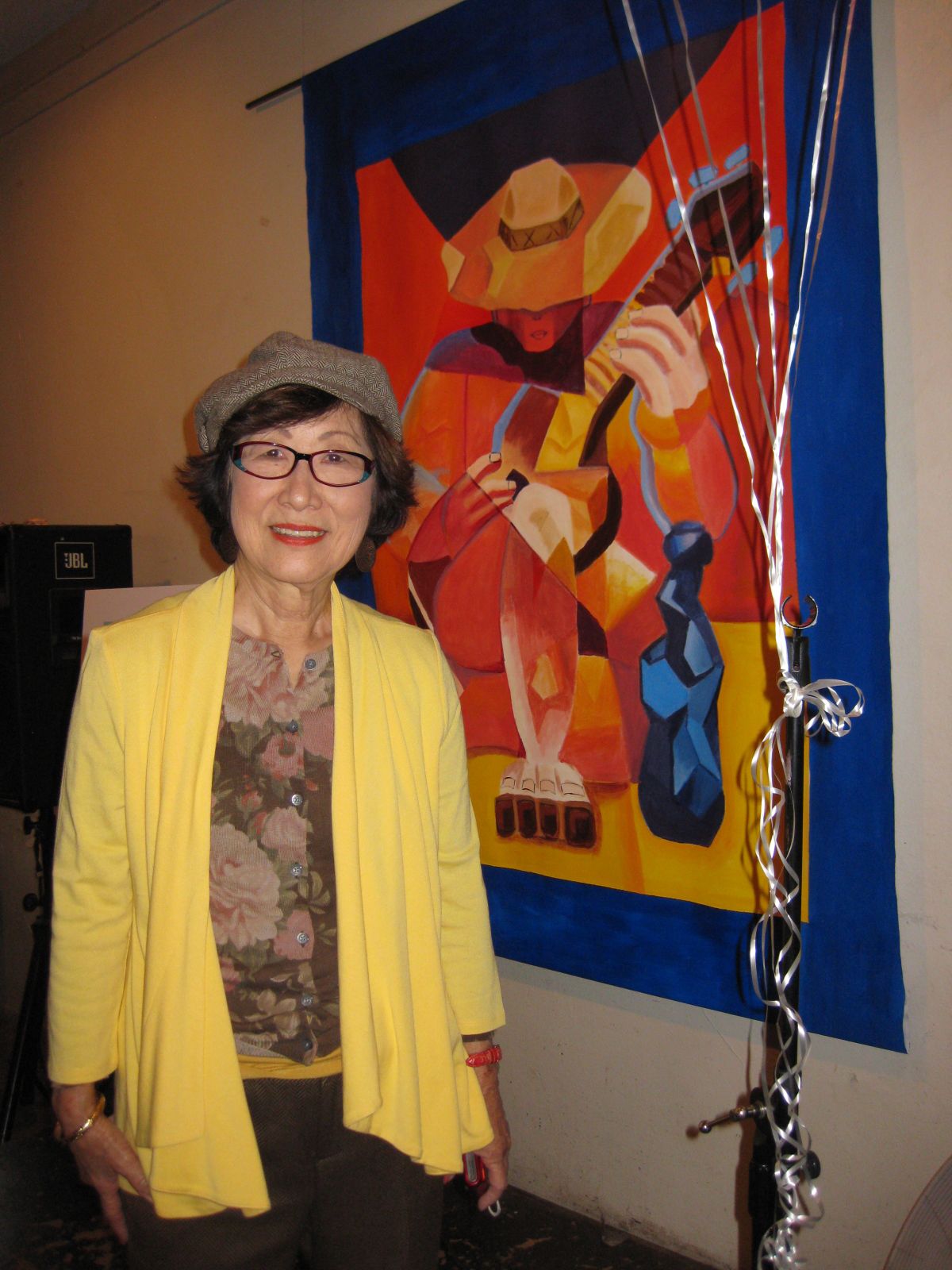It may come as a shock to some that the ignorance which has permitted our grand jury system to fall into a state of disuse and disrepair is often the product of a deliberate intention to weaken or even do away with the institution altogether.
If permitted to continue this way, grand juries, at best, are sure to become little more than rubber stamps for the designs of prosecutors and public officials who do not necessarily or always have the interests of the whole community in mind. This would not only be a serious loss in our desire to provide justice for all but, as history has shown, can devolve into a state of affairs in which grand juries, themselves, can become a dangerous threat to our society.
"No freemen shall be taken or imprisoned or disseised or exiled or in any way destroyed, nor will we go upon him nor send upon him, except by the lawful judgment of his peers or by the law of the land." — Magna Carta, 1215.
"No person shall be held to answer for a capital, or otherwise infamous crime,
unless on a presentment or indictment of a Grand Jury..." — Amendment V,
U.S. Constitution.
While remedies for specific threats to our society—body-cameras, police training, diversity and other much talked about improvements—are important programs for dealing with serious abuses of power, it is our grand jury system which brings the local community into the conversation about what constitutes appropriate policy and roles for protecting the lives and well-being of citizens.
The authors of the Magna Carta thought grand juries were important enough to write them into its founding document in 1215, giving rise to the whole body of common law from which our own legal system was derived. Five-hundred years later the writers of the U.S. Constitution, having used grand juries to successfully resist British tyranny, saw fit as well to explicitly authorize grand juries in that document's Fifth Amendment.
Without such an instrument at hand, there were really only two other options for a society when things tended to get out of control. There was brute force and oppression on the one side; pitchforks and torches on the other. More often than not the worst moments, at least for citizens at large, were the result of these two forces squaring off against each other.
Grand juries are no guarantee such moments won't happen again. But they do remain one of the best methods we have of heading off such conflicts and resolving matters in healthier, less destructive ways. As we have witnessed, much of that result depends on whether we shed our ignorance about grand juries and not only learn how to operate them, but discover ways to improve them as well.
[It is for that reason, and to lift a little of the mystery surrounding our grand juries, The Sacramento Z is planning a series of articles for the coming months on many aspects of the American grand jury system; what it was really intended to do and why it isn't doing that anymore.- eds]
The hidden tale of the wagging dog— is our Not-So-Grand Jury system about to get noticed?
Prompted by the news a few years back about some activists threatened with contempt for refusing to testify and name names to a Seattle grand jury, it came as a bit of a shock to learn that I knew next to nothing about grand juries—what they do or how they do it. A short paper by law professor Susan Brenner, clued me in.
More so, I learned that my ignorance was not unique. Hardly anyone outside the practice of law knows much about grand juries. Even less about how they evolved, what they were really intended to do and why they have devolved from those early intentions.
In contrast, we know a lot about trials and criminal proceedings. There is a daily stream of information and depiction (more or less accurate) of those processes from every angle imaginable. A veritable glut of information in our newspapers, movies, mystery novels and rolling facebook posts. Whole books and films are often set in courtrooms and remain there from begining to end. But about the workings of grand juries, we hear and see little.
It was an even greater surprise as I read on to learn that our ignorance about grand juries is no accident. Nor is it the result of some apathetic flaw in the character of the average American citizen. Our ignorance is partly by design and calculation. It is an evolution of ignorance, guided and managed by a very few specialists—judges, politicians and other legal insiders—who find it advantageous to themselves to keep the rest of us in the dark. Indeed, they have a pretty good idea of what could happen if the people finally woke up, got knowledgeable and took control of a system that was initially designed for their benefit.
The insiders even have a name for this thing they fear most. They call them "runaway" grand juries. They are instances in which a Grand Jury elects to make full use of its powers and cease doing the limited job prosecutors and politicians would prefer to define for them. It is the analog of that other great bugaboo of our legal system, "jury nullification", where petite juries within the court system elect to nullify laws, or applications of them they find particularly odious, by refusing to convict people so accused, whether they believe the accused did the deed or not. However, that device is fairly tightly controlled and rarely used.
"Runaway" grand juries are far more potent and their powers range well beyond deciding the guilt or innocence of single individuals. We will only note for now that it is interesting that the legal system chose the term 'runaway' to describe a body that actually took the full scope of its mission seriously and elected to exercise the powers it had to accomplish it. We might now ask, who or what do these officials of the legal system think these juries are "running away" from?
Above all, many prosecutors find it very disadvantageous to let the public in on what goes on behind the veils of secrecy and legal theatrics they stage and now largely direct on their own initiative.
To the rest of us, grand juries appear as some kind of "drop-box" where reports about somebody's bad behavior are deposited and, a few weeks or months later, a pronouncement ('true bill or 'no bill') will issue on whether the accused is to be bound over for trial or set free. Some of us ("laypersons") are vaguely aware the matter has something to do with "due process" and the 5th Amendment to the Constitution. Beyond that, only mystery has presided over the chambers of our grand juries.
As I read on I began to realize that the grand juries of the American legal system have a very special and important place among the institutions of governance. They fill a niche in the role of modern social and legal theory that sits precisely at the intersection of the authority of state and the sensibilities of the governed. Grand juries, I found, borrow something from each of those entities, yet belong to neither.
They are the only part of our legal structure that is both authorized and empowered by our Constitution, at least at the federal level, yet remain outside the agency of government itself. They are recognized in both history and law as an instrument of the people rather than an agency of the state.
Will The Real Grand Jury Please Rise
Before continuing, it might be good to look at some of the elements of grand jury construction even if one doesn't have any clear understanding of what they mean or what they imply for the American legal system. It is by no means a complete listing, but the following should impart a general idea of important landmarks in any discussion regarding the place of grand juries in our attempts to fulfill an age-old quest—a quest that seeks not only equal justice, but reasonable justice for all.
That would be a legal system which nourishes and supports the citizenry that submit to it, rather than one that seeks to constrain and hammer its subjects into submission.
We are still a long way from that achievement. Indeed, for the past half-century we've moved precisely in the opposite direction. Our courts have pretty much become devices for the benefit of those that own them and are unlikely to concede their egregious error against those they were intended to serve. Grand Juries may be the only remaining door to reestablishing the supremacy of the people and their fundamental right to respect, dignity, and justice from their courts. The key to that door is knowledge.
In the months to come, these are some of the areas our series will be exploring:
- the 'grand' in "Grand Juries" and jury selection
- laypersons and legal advisors
- powers of indictment (true bills)
- powers of presentment (initiatives)
- witness and evidentiary powers
- secrecy and anonymity
- Meetings, quorums and frequency
- powers to investigate and report
- Grand Jury Independence
- Prosecutorial roles and advocacy
- Active and passive grand juries
- Informality and common law origins
- GJ as 'voice of the state'.
- GJ as 'voice of the community'.
- GJ, public domain and future generations
- "Runaway grand juries"
At first glance, the list is about as interesting as reading a phone book. A lot of arcane procedural matters of the kind that only those fascinated with Robert's Rules of Order might stay awake long enough to finish the first paragraph. Recommended reading for insomniacs, perhaps.
In order to realize just how frought with tension and drama that little listing really is and just how much hangs in the balance for the future of our democracy, one needs to consider that every item on that list leans in some way on every other item—predisposes the entire purpose of grand juries to be swayed in one direction or another.
For example, Robert Mcculloch, the prosecutor presenting the Wilson case to the Ferguson grand jury, one that would see if there was probable cause to turn Darren Wilson over for trial (which is the prosecutor's natural expectation in seeking indictments), needed to give a speech afterwards that spent a lot of time trying to convince us of how hard he worked to insure the grand jury's independence.
As David Friege reported in Slate "The Independent Grand Jury That Wasn't" his speech did the opposite, revealing how much he was involved in interpreting evidence for the jury so that its conclusions coincided with his own— the opinion that no crime had been committed.
What is of interest to us is that he even made such a speech. If we are to believe the grand jury acted independently of the prosecutor's office, then it would not have been the prosecutor that described how or why the grand jury came to the conclusions it did. If the grand jury were truly an independent body, it would have been the foreperson or a spokesperson for the grand jury, unaffiliated with any other agency, that would have made such a presentation.
That is almost never the case. Instead, it is nearly always the case that the prosecutor, or someone from the prosecutor's office that speaks for and on behalf of the grand jury.
It would be very convenient if we could simply wave a wand, do a little jurisprudence hokus-pokus and tell the prosecutor to go fuck off, while we the people decide how to go about running our own grand juries. But, as history and luck usually have it, things are not so simple. There are some inconvient truths hidden in the closets of grand juries and the people who hang their hats in them, running all the way back to the 12th century.
All the king's horses, and all the king's men...
At heart, there is a tug-of-war going on, and has been since Henry II established the first grand juries. At that time, the tug of war was mainly between the Crown and a rather large group of nobles and clergy who had become increasingly reckless, often criminal, in settling land disputes and other matters among themselves during and after the chaos of the Crusades. Henry's plan (beginning with the assize of Clarendon in 1166) was to put such matters in the hands of a number of select laypersons from the community.
All The King's horses...(continued)
These knights or freeman were, by Henry's reckoning, loyal subjects whom he could use in this fashion to shift power back to his much weakened court. In addition, these local grand juries were thought to be in a much better position to identify disturbances and criminal elements in their own jurisdictions and from their own knowledge of local affairs, which would then be turned over to the Crown for remedy, prosecution and punishment.
In establishing these grand juries, Henry, perhaps unwittingly, invited an element into the judicial processes of the relm that he did not anticipate. Namely, the growing loyalty and identification of his layperson juries with their communities rather than the court. Slowly but surely these new sources of judicial power evolved into what Dr. Brenner refers to in her paper as the "Voice of the Community".
That is, it not only provided a structure for those who were subject to the King's laws to exercise authority that their hamlets and towns might rid itself of noxious elements, but that they might also challenge, even nullify, the King's laws when they were thought excessive, unjustified or contrary to the conscience and values of the local districts to which they were applied.
The evolution of this newly crafted authority would be slow and uneven. The desire of the Crown to apply its laws in whatever fashion it chose, and to whatever purposes it wished, would pull against the desire of local communities to look after their own affairs and protect themselves from the arbitrary or capricious powers of the state.
In one direction, this tug-of-war could and did devolve into such infamous horrors as the as the dread Star Chamber of the 16th and 17th centuries. At other times it flourished in its local authority and could be used to effectively thwart the power of the state.
Such was the case in the American colonies when grand juries often refused to indict loyalists citizens at the behest of royalist prosecutors, people the Crown regarded as thugs and traitors but the colonists regarded as patriots. The conspirators of the Boston Tea Party were able to escape punishment by the Crown in exactly that fashion.
And so the grand jury, as a fulcrum in the contest for power between the state and the people concerning matters of justice has been moved through deft legal crafting in one direction or the other ever since. For the past 150 years grand juries have been largely in a phase of devolution, slowly being stripped of powers instrumental to holding their own on behalf of the communities they are charged to serve. About half the states doen't even use them, and many of the others impose limitations that greatly reduce their power and value.
The Grand Jury — Produced, written and directed by A. Prosecutor
It is tempting, in this age-old contest, to focus entirely on the scripts of its theatrical manager, the state or federal prosecutor. In the previously cited article by David Friege, we are alerted to the fact that it was the prosecutor, Robert Mcculloch, who stage-managed the script in Fergurson that resulted in a 'no bill'/no indictment of officer Wilson.
Indeed, as Friege notes, it was his performance, intended convince us he "bent over backwards" to insure the "independence" of the grand jury, that Mcculloch reveals the extent to which he staged matters precisely to obtain the decision he had in mind from the outset.
In a recent Huff Post 'Crime Report' by attorney Joel Cohen and Pace law professor, Bennett Gershman, the author's bring to light an interesting strategy in Mucculloch's approach to grand jury inependence. In his method, they reflect, "McCulloch intended to, and did, go much farther than the law actually requires him to do", presenting evidence on behalf of the defendant, as well as the prosecution, a role which prosecutors don't normally take on in seeking indictments.
So, even though a grand jury — impaneled for the sole purpose of deciding whether to charge someone with a crime — traditionally will only hear the prosecution's side of a case (which may not always be a good thing), McCulloch specifically chose, under cover of being "fair and impartial", to make it appear that he was "trying to let the chips fall wherever they may -- ostensibly to be seen as making a fair and balanced presentation."
What is significant is that the question of grand jury independence does not depend on the outcomes of grand jury deliberations, either way. It rests with the presence of prosecutor's who influence and manipulate decisions by grand juries far beyond the simple collection of facts asserting the reasons the state believes a particular individual should be indicted.
If that were not so, then one would be well within reason to ask, "why is the state even referring a particular case to a grand Jury?" The issue in question pertains to the use of exculpatory evidence, evidence which would tend to weigh in the favor of the accused?
This is not to imply that exculpatory or mitigating evidence should never be brought before a grand jury. Only that, when a prosecutor does it and is often the only one permitted to present evidence to a grand jury, it constitutes a clear conflict of interest. A prosecutor simply cannot serve both the prosecution and defense at the same time. Otherwise it would become an additional responsibility of a grand jury to treat the prosecutorial motive as item of evidence to be weighed in its deliberations; a task no grand jury is prepared to do.
In any case prosecutors rarely provide such exculpatory evidence to their grand juries. Why would they wish to weaken their own case? Fergson, as we noted, was a rare exception; an exception in which one might reasonably believe the prosecutor did not really wish the grand jury to return a true bill for an indictment.
In many cases where the prosecution does not really wish for a true bill decision, they would simply not refer a case to the grand jury at all. We sometimes read in the paper "DA SAYS NOT ENOUGH EVIDENCE TO CHARGE SUSPECT" or some similar announcement. In cases like that of officer Wilson, however, it is easy to see that the prosecutor had little choice. Had he chosen not to seek an indictment, the pitchforks would have been in front of his office in no time.
Trying to pass the buck to the grand jury and manage things from there was his only other best option. In that way he could count on the ignorance of the public to bolster a claim that it wasn't his decision. After all, he gave everything to the jury, more than they would usually get in a proceeding. All in the interest of "fairness", including four hours of opening statements by the defendant and cross-examination of his own witnesses that might tend to weaken his case.The Abracadabra of Fair&Balanced
If one of the responsibiliities of grand juries is to protect citizens from unwarranted accusations of serious crimes, then exculpatory evidence certainly must play some part in their deliberations. One needs only imagine a case in which the suspect was in prison during the time the crime was committed; or a person with a deadly allergy to marigolds is identified as the person who witnesses say dragged a body through a field of marigolds and left it there, or DNA samples say couldn't have committed the crime.
But, if it is not the job of the prosecutor to introduce such evidence, whose job is it? Certainly it cannot simply be left entirely at trial to decide if certain exculpatory evidence indicates that someone accused of a crime could not possibly have done it or otherwise makes it extemely unlikely they did it. Exculpatory evidence serves as reason to not charge someone with a crime in the first place.
Some suggest we should abolish grand juries altogether, and simply handle such matters directly through jury trials which have elaborate rules for excluding evidence as well as hearing it. Others, such as Hawaii's legislators, have assigned the job of legal advice and counsel for its grand juries to qualified attorneys who are kept insulated from the offices of the prosecutors, and mitgates the over-reliance of grand juries on prosecutors.
So we have some of the principal actors—the prosecutor, the evidence, the state, the community, a set of laws, and a set of public sensibilites about how those laws are to be applied—working sometimes in concert, sometimes in opposition. Sometimes more fairly, sometimes less. Still, if that was all there was to the behavior of grand juries, and their independent mission, we might be inclined to agree that a focus on the the behavior of prosecutors and some equal attention to the excessive reactions of the police, and the racism implicated in the exercise of authority would correct matters as well as perceptions over time.
In so doing, though, we might temporarily compensate for some of the most obvious problems of outright injustice, we'd miss the point that the grand jury itself, the whole of the mechanism that is 'grand jury', is some how out of tune and needs serious recalibration.
The author's of the Magna Carta were no friends of democracy or liberal idealism. Nor were the author's of our Constitution unmindful that it was necessary and proper for the state to maintain and enforce rules for an orderly society. Yet both were equally mindful that the subjects of that order required protection and immunities from the very source of that order lest it become over-zealous and oppressive. And, though they well knew the somewhat checkered history of grand juries, both thought it important enough to explicitly provide for its establishment in their ruling documents.
Without such a device, only brutal oppression could lay to one side, or equally violent public response on the other. To keep both sides within their proper boundaries would require something that could facilitate both, yet belong to neither.
A Republic if you can keep it.
We have taken a brief look at the prosecutorial functions and operations of our grand juries, along with a little of the history that brought them into being. In future articles we will explore other matters concerning the missions and operations of our grand juries. Some of them may be seen to be even more important and powerful than the prosecution and indictment functions we have covered. The 'investigative function' of a grand jury, for example, goes far beyond the investigation of a particular crime and the assignment of responsibility for the commission of a crime. Grand juries were once fully empowered to investigate anything the wished concerning the operations of the state, whether it involved a matter of crime or corruption or not. As we have observed on some occasions, investigative reports have exercised considerable influence in bringing about changes in the way the state operates and how it discharges its reponsibilities.
We will also look into the equally important power of presentment, which has been largely constrained or entirely removed from the tools available to the grand jury in fulfillment of its mission. We might ask, why there wasn't a single grand jury in the country that considered the matter of President Bush's initiation of the war in Iraq based on lies and deliberate deceptions on the part of his Administration? Why was he not indicted for what might have been found 'reasonable cause'by any one or more of our independent grand juries?
Or, consider what might have been the outcome if some federal grand jury had taken on the task of investigating whether Donald Trump had committed any number of serious crimes long before it came to his impeachment or the investigations of the January 6th committee and the Department of justice? True, a grand jury might not be able to remove a president from office or bind him over for trial, but imagine how even their investigative reports might have altered the conduct of the trial in the Senate, at least to the point of providing evidence that could not be so easily dismissed, distorted or blocked by Senators determined to prevent a conviction?
Such matters, and more, will be the subject of future articles as we continue this inquiry into the workings and promise of our much maligned and neglected institution of our grand juries and why, that above all may be the only institution which really can withstand the power of the state and, perhaps, the forces determined to end this experiment in democracy altogether. Perhaps, to Ben Franklin's classic, "A republic, if you can keep it," we should add, "A grand jury, if you can preserve it."
[This series is written strictly from a lay perspective. Your editor has no special background in law or law history. Please bring any inaccurancies or errors of fact you might find to our attention. - ed.]
next installment:
The Grand Jury — A perfectly Bipolar Institution

 Laughing Lady
Laughing Lady





